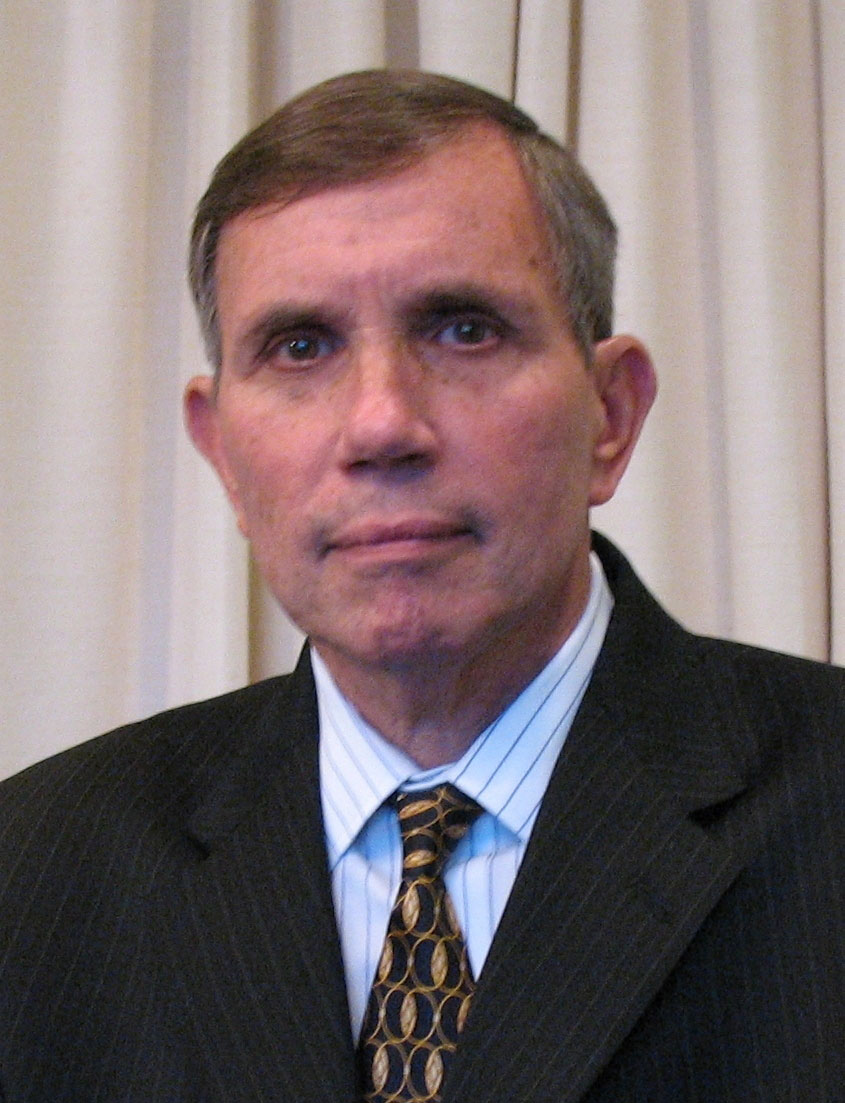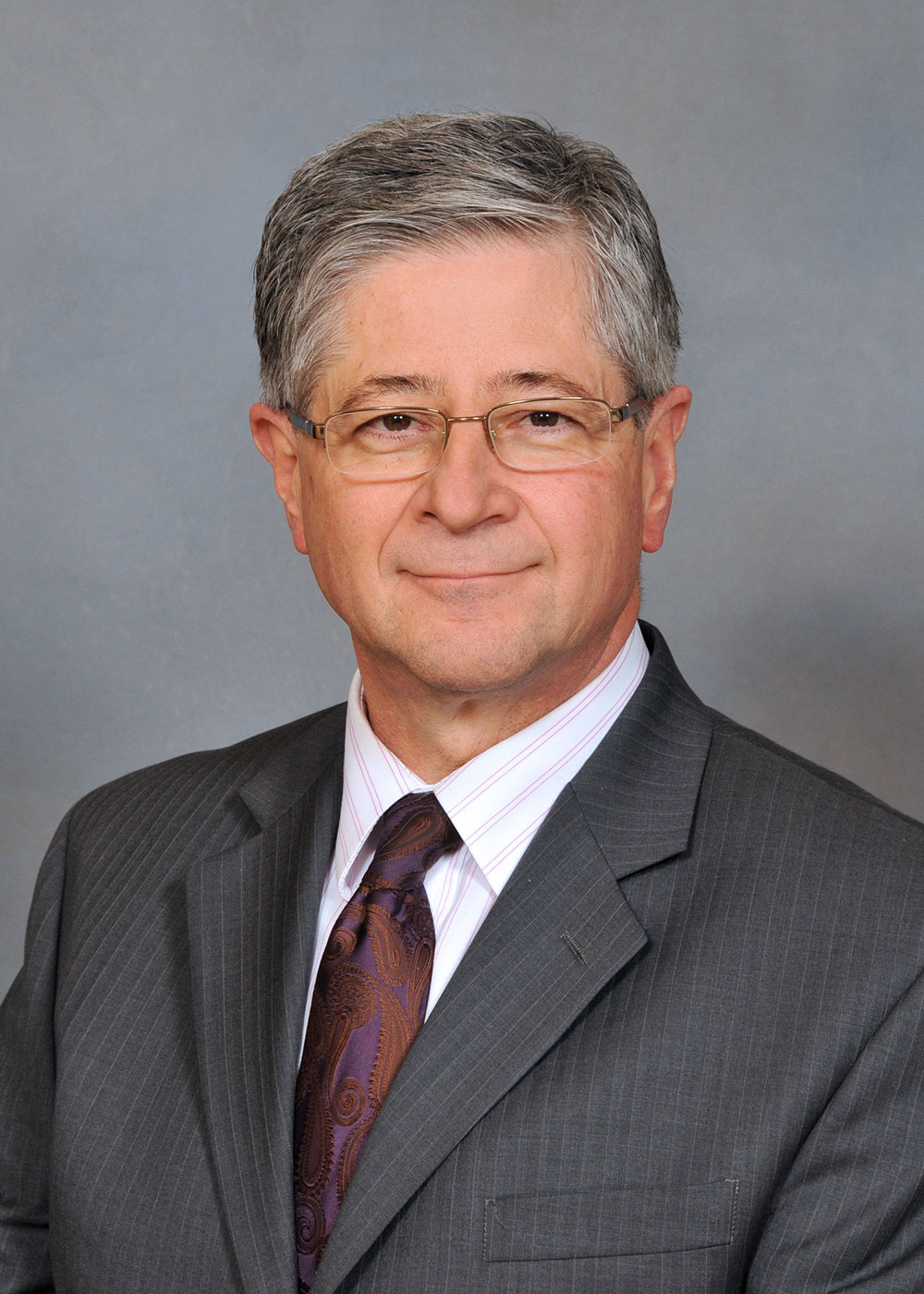
Interview with Albert C. Gray, Ph.D., President and Chief Executive Officer and Anthony S. Bieda, Vice President of External Affairs, Accrediting Council for Independent Colleges and Schools
In August, the Consumer Financial Protection Bureau (CFPB) issued a Civil Investigative Demand (CID) to the Accrediting Council for Independent Colleges and Schools. ACICS subsequently petitioned the CFPB to set aside or modify the CID, stating that the Department of Education is the review body exclusively responsible for the oversight of accrediting agencies; that ACICS is not within the jurisdiction of the CFPB because it is not a “covered person,” “affiliate” or “service provider;” and that the CID is burdensome since it is broad and fails to identify the nature of the conduct under investigation.
The CFPB denied the request, and ACICS then sent a reconsideration request, which CFPB also denied. Career Education Review Editor Jenny Faubert talked with Dr. Albert C. Gray, ACICS president and chief executive officer, and Anthony S. Bieda, ACICS vice president of external affairs, about what they feel is an unprecedented overreach by the CFPB. Their conversation on that and more follows.
The Consumer Financial Protection Bureau issued a Civil Investigative Demand to ACICS on Aug. 25, 2015. What was your response?
Dr. Albert Gray: We were very surprised to receive the Civil Investigative Demand from the Consumer Financial Protection Bureau. We petitioned the Bureau, under their procedures, to have that Civil Investigative Demand set aside, principally on a jurisdictional basis. The CFPB was established to protect consumers from fraudulent or poor consumer financial practices. As an accreditation agency we do not provide any services directly to consumers, and we are certainly not in the financial business so we provide no financial services. We clearly do not fit within the purview of this agency, or within its mission. Thus, ACICS should not be subject to enforcement action of the CFPB because it is not a “covered person,” “affiliate” or “service provider.”
However, the main reason we wanted to set this aside is because we are concerned about the implications it has on the independence and integrity of the entire accreditation process.
It is a process that’s been established with ACICS for more than 100 years and it has been formally recognized by the federal government since the 1950s. This is an investigation that threatens or compromises the very essence of the process, including the independence and the objectivity of it. We also reached out to the Bureau and said we would be happy to meet to discuss accreditation and answer any questions they have. We made that offer on more than one occasion and it was summarily declined in every instance.
An important point to remember is that Congress has explicitly provided for oversight of accreditation agencies by the Department of Education. The Department does not have the authority to set standards for academic quality, or quality assurance. All federal agencies, including the CFPB, are prohibited from encroaching on the authority of Congress to regulate accrediting bodies for higher education.
Richard Cordray, director of the CFPB, denied ACICS’s petition to set aside or modify the CID on Oct. 8. Why was it denied? What are your next steps?
Dr. Gray: In its denial the CFPB relied on very technical, legal precedence to defend its encroachment into a non-consumer financial matter. The response did not rebut, or even acknowledge the argument that only Congress has the power to authorize U.S. accrediting agencies through the Higher Education Act and that only the Department of Education has the authority to regulate accreditors. Their denial was based strictly on rather esoteric — at least if you’re not a lawyer — legal precedence that they cited in their brief denial. In light of the letter that had been sent by Sen. Lamar Alexander of Tennessee and Rep. John Kline of Minnesota to the CFPB, our next step was to ask for reconsideration of that denial. We did that informally, through our legal counsel. Unfortunately, the CFPB filed a petition in District Court to force compliance with the CID.
We of course, will follow court order, but remain concerned about the CFPB’s request for the names and contact information of every volunteer evaluator who has taken part in an ACICS accreditation review. This could have a devastating effect on our peer review process if the home schools of our evaluators no longer agree to allow them time from their campuses to participate in site reviews.
Is the CID centered on certain ACICS member schools or on ACICS as an organization itself?
Dr. Gray: We don’t know. The CID fails to identify the nature of the conduct under investigation and is overbroad and unduly burdensome. It states, “The purpose of this investigation is to determine whether any entity or person has engaged, or is engaging, in unlawful acts and practices in connection with accrediting for-profit colleges in violations of Section 1031.” Then it goes on to talk about various regulations by citation. It’s a very broad-brush, wide-sweeping statement about purpose. But at this time we don’t know whether it ties directly to their attempt to prosecute or investigate individual colleges.
However, the CFPB did list a number of for-profit institutions in terms of informational requests.
On Nov. 6 the Education Department unveiled a package of reforms on accreditation, in an effort to improve oversight and make the accrediting process more transparent to consumers. Where does ACICS stand on reforming accreditation standards?
Dr. Gray: We look forward to working closely with the Department of Education and Congress in the months ahead to implement practical solutions to strengthen the accreditation process in order to better serve students.
ACICS has long called for improved coordination between accreditors, the Department of Education and state oversight agencies to prevent circumstances that disrupt the lives of students if their school suddenly closes. However, ACICS objects to the call for Congress to allow the U.S. Department of Education to establish standards for student achievement and academic quality by repealing explicit prohibitions to the contrary in the Higher Education Act.
ACICS also disagrees with the creation of a two-tiered recognition process for accreditors. National and regional accreditors represent different types of institutions of higher learning, but share the common, honorable goal of assuring the quality and integrity of education.
If a greater emphasis is placed on job placement and student retention data, then ACICS is perfectly positioned. Although regional accreditors don’t track those metrics, they’re at the core of what ACICS and other national accrediting agencies abide by. In fact, ACICS has already launched a beta testing program where we randomly call completers of programs of ACICS-accredited schools to determine if they have secured a job that is commensurate with the training that they received in school. In other words, we’re verifying placement statistics and placement standards. We expect to have that beta testing process converted to full operation by early next year. We strongly encourage all accredited schools to follow best practices in prominently disclosing their placement and retention data in order to inform consumers and to advance student achievement.
At a policy level, we’re also advocating a collection of more and better empirical data to base decisions on and to preserve the peer review process, and wherever possible, to try to remove the hurdles around the transfer of credits. Our entire platform for improvements in accreditation is on our website in one of our White Papers. So we’re always open to reforms, but they need to be evaluated on whether they have a direct, positive impact on the quality of each student’s education.
How is the beta testing going?
Dr. Gray: We’ve been at it most of the year and it’s going well. We put in a permanent call center that is currently staffed by one person. We tested the system by email and by calling students and employers. As opposed to the traditional third-party method, ours is a real-time method where we get a report from the school and within days of getting that report, we turn around and verify it. We have achieved very high response rates so it’s a positive experience. It’s done through a spreadsheet and the schools are very complimentary about the effectiveness and the user friendliness of the spreadsheet. Every year we will test 20 percent of our institutions, so all of our institutions will be tested within five years. This is of benefit to us, but it’s also of benefit to the institutions because when they need to answer questions about the veracity and the credibility of their data, they’ll have empirical results to fall back on.
Recently a pilot program was announced by the Department of Education that would allow students access to federal grants and loans for non-traditional education, such as boot camps. How do we strike the right balance between pushing this innovation while still ensuring high academic standards?
Dr. Gray: It’s a challenge. First of all, ACICS has an ad hoc committee of commissioners studying how accreditation can work best with these MOOCs, or Massive Open Online Courses, and other types of short-term programs that are out there. As you know, the American Council on Education has already begun to improve some of these for inclusion in the curriculum at some universities and some universities have accepted that. But it’s a risky process because you need to have adequate peer review to achieve quality assurance, even in short courses. While you can’t eliminate the peer review step, perhaps it could be tailored to short courses and include fewer steps in the administrative process. However, at this point, I don’t know how you would do that. Somehow, adequate peer review needs to be woven into the system.
You also need to have outcome assessment, or in this case, learning outcomes that you will need to define. I know the Council for Higher Education Accreditation is looking at how to do that; there’s been talk about badging being one way. But there are a lot of proposals out there. We know that the accreditation system is not perfect, but it is essential. That’s the message I’m trying to convey. It remains essential, even when trying to incorporate these boot camps, MOOCs and other shorter programs into the old world educational system.
ACICS has more than 100 years of experience in the peer review process.
We know that it’s the strongest way to achieve quality assurance in educational products, whether they’re four-year baccalaureate, five-year master’s programs, or six-month MOOCs.
Accreditation is still the strongest method to achieve quality assurance. I think that process is still valid, and while it needs to match the goals of a short-term course, it also needs to be part of that process. So we are concerned. We don’t want to see these become cookie-cutter diploma mill situations.
Has anyone offered up a different option to oversee programs besides accreditation that is viable?
Dr. Gray: The Department has an experimental process in the works for these shorter-term, primarily online courses. At this point, however, it’s not clear to me whether accreditation has been appropriately embodied in that. We’re watching that closely.
Students seem frustrated over their inability to transfer credits to another institution. Has ACICS taken any action regarding transfer of credits?
Anthony Bieda: ACICS has done a couple of things. First, we will intervene on behalf of our accredited institutions if their students are having difficulty getting their credits accepted at another institution. Many times that intervention on our part will lead to the receiving institution reconsidering whether to accept those credits. It doesn’t always help, but it’s something we’re willing to do.
Secondly, we intervene regularly in policy arenas, primarily at the state level where state legislatures or state approval authorities are looking to change regulations to facilitate more transferability of credit between institutions, be it regionally or nationally accredited. We provide written testimony and evidence that basically says that from an accreditation community’s standpoint, relative to transferability of credit, there is no difference. There are two types of accreditors from the perspective of the Department of Education and that is institutional and programmatic accreditors. But the difference or disparity between regional and national has no meaning within the way the Department of Education reviews and grants recognition to institutional accreditors; therefore, it’s inappropriate for institutions to discriminate on the basis of source of accreditation in terms of transfer of credit.
The third area is a research project that we commissioned and completed this summer that surveyed member institutions and students who attend those institutions. Institutions were asked about their policies relative to credit transfer and students were asked about their experience in transferring credits. We’re in the process of sharing that information widely and forcefully because it does show that there is reasonable to good transferability of credit experiences from the students. The policies of our institutions are also very open to receiving credit transfer from other institutions. The reason we did that was to make sure that our family of schools are not part of the problem, but rather are part of the solution. I think the research largely validates that hypothesis.
One last question, what are your plans for 2016?
Bieda: We have substantial goals for 2016. First is re-recognition of our authority by the Council for Higher Education Accreditation (CHEA) in early 2016. Then, we will be up for re-recognition review by NACIQI, the National Advisory Committee on Institutional Quality and Integrity, by the middle of 2016. In the context of all the scrutiny and all the criticism of the sector and of accreditation specifically, ACICS will be providing evidence and will have to defend that evidence in front of the CHEA Committee on Recognition and subsequently NACIQI. Those are our substantial challenges that we believe we will be able to meet, but they do require the focus of the Council, its leadership team, all of our employees and all of our evaluators.
Our third goal is to put together another excellent program of professional development and guest speakers during our annual conference in May in Fort Worth, Texas. It is a significant opportunity for ACICS to put its best foot forward.
Dr. Gray: Lastly, since we’re in the quality improvement business, we also plan to continue to improve our accreditation process and make it easier for our schools to utilize our accreditation process and get through it, all while continuing to have a rigorous review process and rigorous standards. We really want to work more closely in partnership with our accredited institutions.

DR. ALBERT C. GRAY was appointed President and CEO of ACICS in December 2008 by the ACICS Board of Directors. Dr. Gray has more than 25 years’ experience directing accreditation, professional and technical membership programs; including most recently as the founding executive director and CEO of the Public Health Accreditation Board. He is a former CEO of the 50,000 member National Society of Professional Engineers, and has served in various management and consulting capacities with national engineering firms since 1972. Dr. Gray has been a leader in the design and implementation of a number of accreditation and certification programs including accreditation of public waters systems, high risk environmental management systems, local and state public health departments, and higher education programs. Dr. Gray earned undergraduate and graduate degrees in engineering at Rensselaer Polytechnic Institute.
Contact Information:Albert C. Gray, Ph.D. // President and Chief Executive Officer // Accrediting Council for Independent Colleges and Schools // agray@acics.org

MR. ANTHONY S. BIEDA has served as primary advocate for ACICS, the largest and oldest nationally recognized accreditor of career colleges and schools, since 2007. He represents the Council in front of policy forums at the state and federal level, particularly focusing on issues regarding the source of accreditation, the process and substance of quality assurance, the metrics of student learning and the relationship between effective career education and workforce readiness. Mr. Bieda has more than 35 years’ experience as a policy liaison for telecommunications, public higher education, county government and career education. He earned a bachelor’s degree in journalism at the University of Northern Colorado; an MBA in finance at Regis College, and coursework toward a Ph.D. in public policy at George Mason University in Virginia.
He initiated “The Workforce Skills Reality Check,” in 2011, and “The Underemployed Generation” in 2013, seminal research projects commissioned by ACICS to evaluate expectations of contemporary employers and students regarding post-secondary education that leads to relevant employment.
Contact Information:Anthony S. Bieda // Vice President of External Affairs // Accrediting Council for Independent Colleges and Schools // 202-336-6781 // abieda@acics.org
